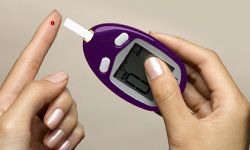Many women dread the anticipated symptoms of menopause. They fear the potential hot flashes, weight gain, bloating, memory loss, or night sweats. Every woman is different and will approach menopause at different ages. However, you can experience what is called “early menopause” as young as in your mid-thirties. However, there is no reason to fear this change in your life. If you take the proper steps before your body goes through these natural changes, emotional and physical health can be affected. It is important to take care of the body prior to these changes for the best outcome.
As you approach your mid to late 30’s, hormones begin to change as your egg supply gradually decreases. You may start noticing shortened menstrual cycles or different PMS symptoms. The estrogen and progesterone levels will fluctuate and then eventually your estrogen levels will drop till you have no menstrual periods. These are normal menopausal symptoms. Abnormal menopausal symptoms are the hot flashes, weight gain, undesirable hair growth, dry skin and hair, bloating, you know…all the “symptoms” we are supposed to fear. Hormonal imbalance is what makes these symptoms abnormal.
There are many reasons behind hormonal imbalances that we do not have control over. The xenoestrogens and the environmental factors such as pollution and the many toxins that we are surrounded by can affect us. Endocrine disruptors are a category of chemicals that alter the normal function of hormones. Normally, our endocrine system releases hormones that signal different tissues telling them what to do. Chemicals have the ability to mimic our natural hormones. This is particularly harmful to hormone sensitive organs like the uterus and the breast, and the immune system.
The types of endocrine disruptors that we do have control over and that we can determine is what we need to focus on. Excess weight for instance can cause hormonal imbalance because fat cells produce Estrone, the type of estrogen that is most carcinogenic or cancer causing. This unhealthy estrogen ratio makes your more estrogen dominant. Other effects of estrogen imbalances are mood swings, weak bones, lack of lubrication, and even diabetes.
Iodine deficiencies can lead to increased sensitivity of the breast tissue to estrogen. This causes estrogen production to increase because Iodine helps the body to metabolize estrogens to favor the safer form of estrogen which is called estriol. Balance of estrogens is impossible to maintain in an iodine deficient state. Iodine levels can be tested for and can be an easy fix with the right diagnosis.
Dairy accounts for 60-80% of estrogens consumed. Dairy products containing cow’s milk contains a considerable amount of female sex hormones. Get this… “Part of the problem seems to be milk from modern dairy farms, where cows are milked about 300 days a year. For much of that time, the cows are pregnant. The later in pregnancy a cow is, the more hormones appear in her milk. Milk from a cow in the late stage of pregnancy contains up to 33 times as much of a signature estrogen compound (estrone sulfate) than milk from a non-pregnant cow. (1)”
Other ways to reduce endocrine disruptors would be to read ingredient labels. There are many products that can affect our natural hormone balance which we can avoid just by detecting them in the foods we eat. For instance, Bromide is often found in bakery products. Bromide has been shown to exacerbate Iodine deficiency which we discussed earlier. Flouride can also bind to Iodine receptors and in the presence of Iodine deficiency, can worsen its affects. Flouride is found in your water supply, toothpaste, and oral rinses.
The balancing act of hormones is not an easy one. Like mentioned before, every woman is different and will go through menopause at a different age. However, there are many factors that you can do to promote the body’s natural cycle without experiencing a lot of side effects. Many deficiencies and toxicities can be determined by comprehensive blood testing and a tissue mineral analysis. With the proper testing and the right guidance by your experienced practitioner, women can achieve optimal health and make the right lifestyle changes to promote a more natural and safer hormone balance. For more information about hormones, visit our Newsletter section on our website. Remember, drastic changes won’t be seen overnight. Proper testing is key. However, here are some basic supplements for support:
- B-Complex (50mg)
- Calcium (500mg: MCHC, Lactate or Citrate)
- Magnesium (200mg: glycinate or taurate)
- Vitamin D3 (5000IU: cholecalciferol)
- GLA (borage oil) (240mg)
- Fish oil (500mg of Omega 3’s)
- Boron (get tested)
- Iodine (get tested…individual supplementation should only be implemented when test results determine the need)
Reference:
1. Ireland, Corydon. Hormones in milk can be dangerous. Harvard News Office. Dec 2006.

